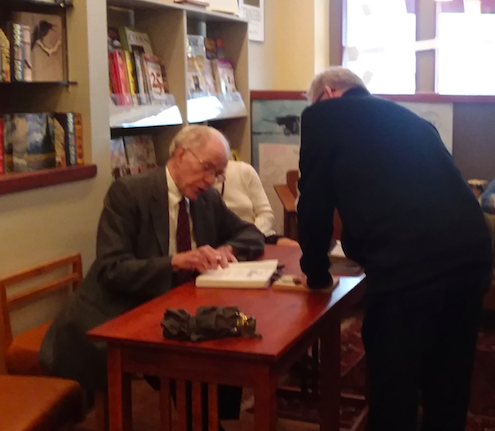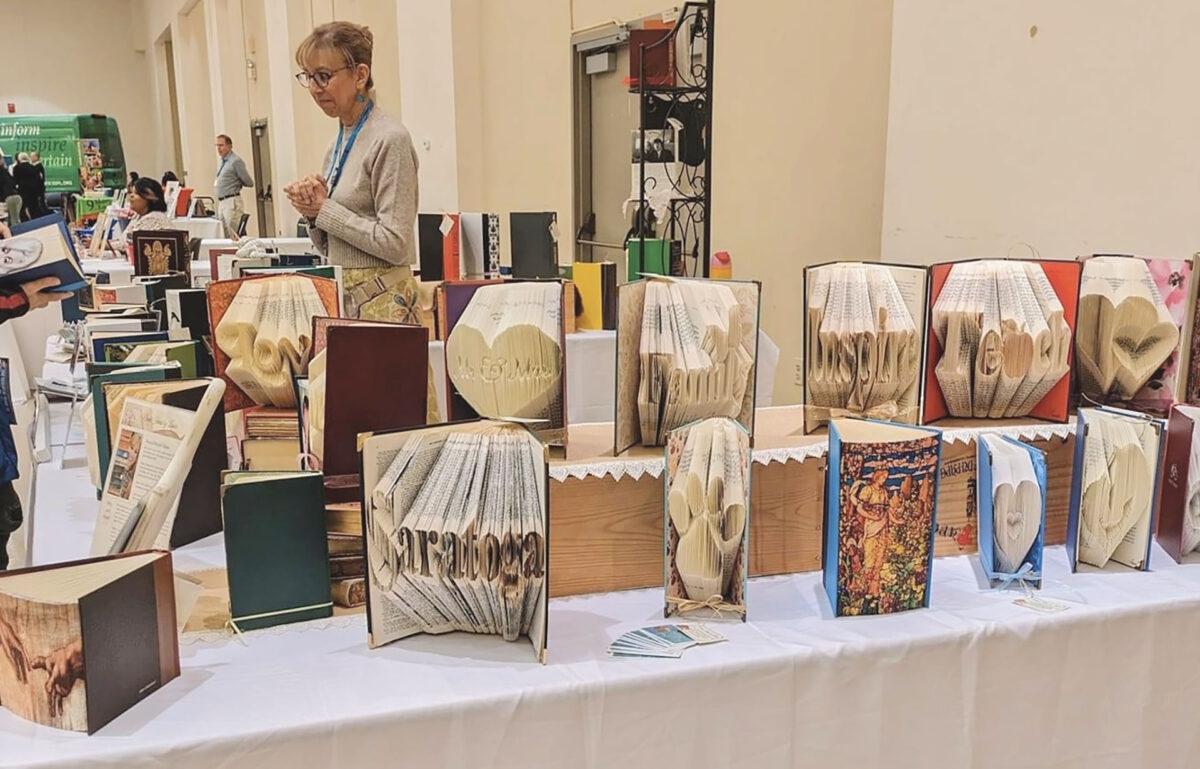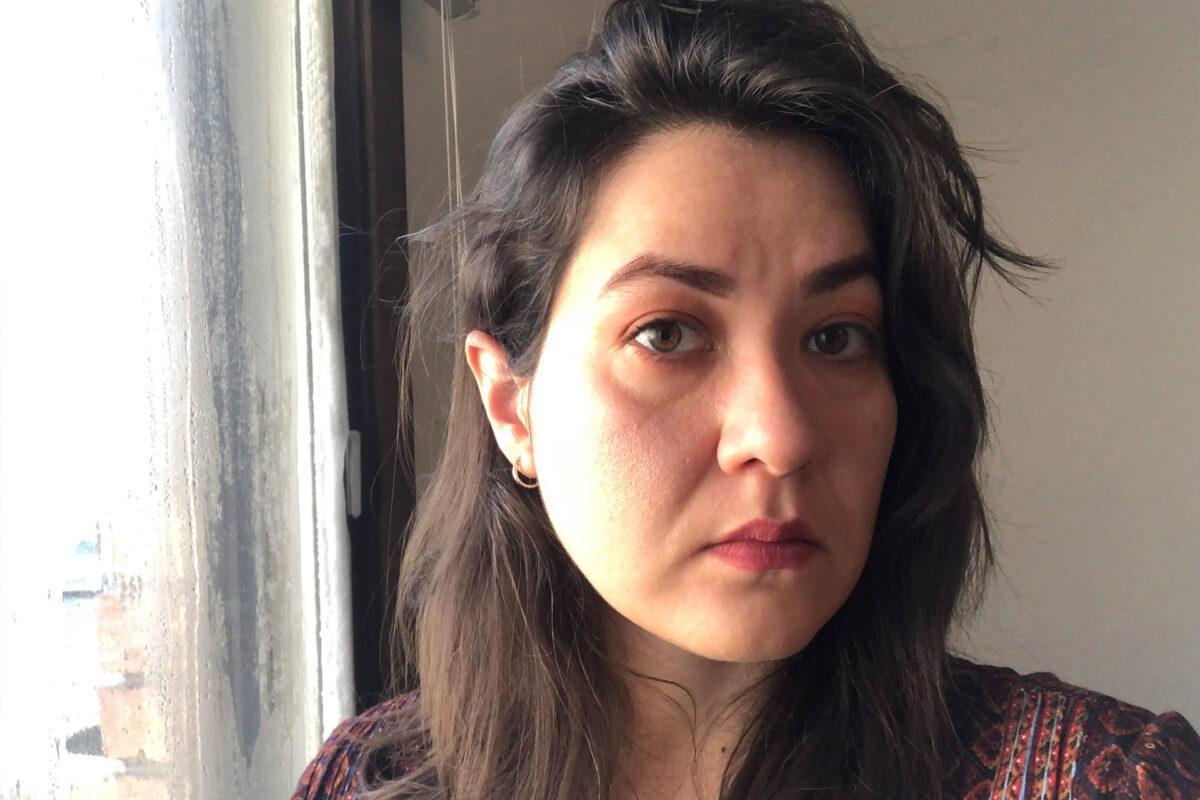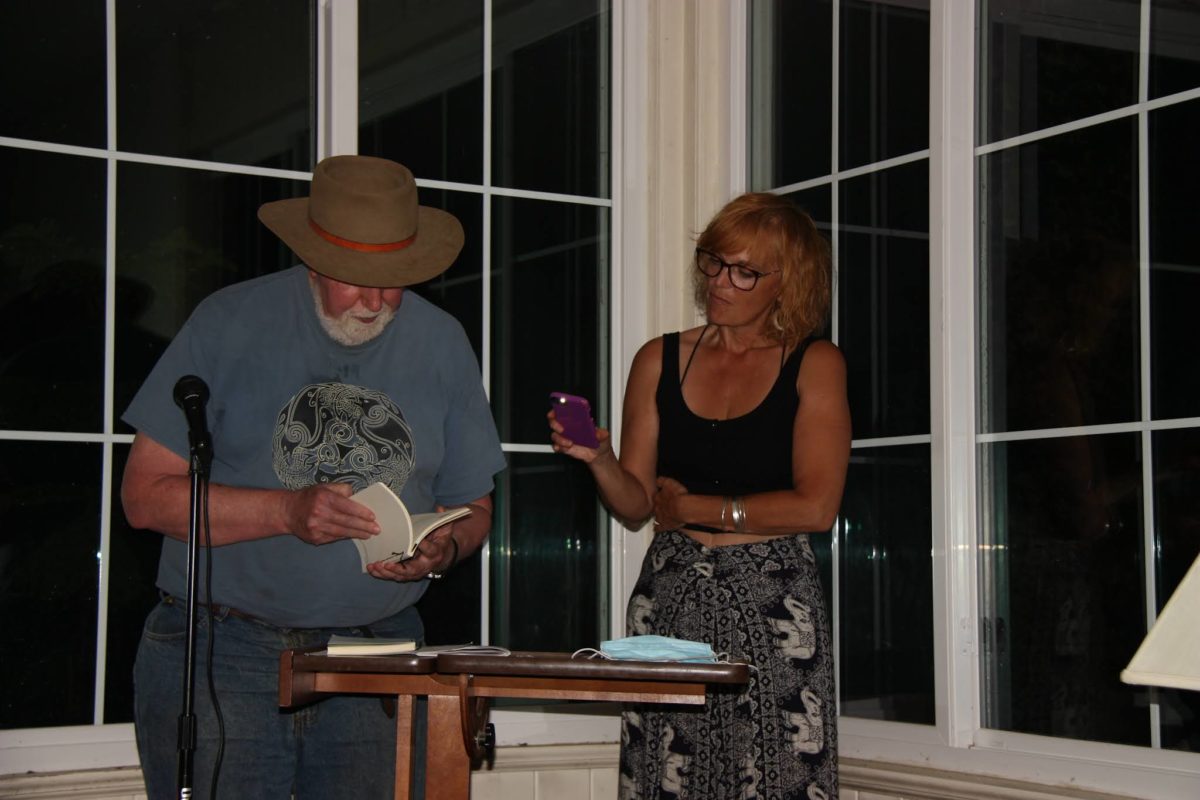By Octavia Findley
The Book House of Stuyvesant Plaza was relaxed in the Sunday afternoon haze of October 7, 2018 until William Kennedy, accompanied by Paul Grondahl and Suzanne Lance came on the scene. A round of cheering followed their entrance, before the rustling of bags and zippers filled the room, a generous line forming in front of the low table even before Kennedy had a chance to sit down for his book signing.
It was a small affair, but the queued readers held not only Kennedy’s most recent book Bootlegger for the Soul, but his other works as well. It was I who was the stranger in the room, having only heard of Kennedy a fortnight ago at the start of my internship with Com.pen.dium. But the afternoon rolled on, and Grondahl called the crowd’s attention, “When Bill turned 90, we decided he wasn’t the rocking chair type.” The audience laughed for a few minutes, a few whistles arced over ahead, before Grondahl waved the crowd back down to a simmer, and resumed his tale about the writing and titling of Bootlegger. Suzanne Lance read an excerpt of her own choosing, before giving the spotlight over to Kennedy.
“I am always asked about why I write about Albany,” he began softly, leafing through the pages of his novel. He cites his inspiration from James Joyce, and how he captured the spirit of his native Dublin despite his exile to Paris. Kennedy related it to his own experience in Puerto Rico as he sat down to write about his time there. “The reason why I enjoyed the Albany novel more than the Puerto Rican novel was because I was doing what Joyce was doing without knowing what I was doing: reconstituting a city.” The conversation then turned to the politics of the Albany that he grew up in and later returned to as an adult. His account of his rise to fame was unembellished, “People began to write about me and my books,” he made a detour in this thought to recount the festivities held in his honor in 1984, “the only time I’ve seen someone get more coverage than this was a dead pope.” Snickering aside, Grondahl announced there was time for a few questions.
“What gives you joy at this point in your life?” It was eagerly asked, but the seconds drew long as Kennedy chose his words. “Writing, always, but I’ve been sick… I’m getting back into it.” The second was long and storied, mired in the individual’s personal history, but at last was stated succinctly, “Why does Albany’s corrupt reputation still exist downstate?” He answered briefly, citing his own success as a major factor in the city’s changing politics, and the growth of the region overall as means for further dispersal of the ghosts of the old days. Swiftly, as if to catch the falling mood, “What’s left to write about in Albany?” He perked back up and quickly answered, “I’ve yet to scratch the surface…” He listed a handful of unfinished projects and a play that has now been finished for the twentieth time. “There’s an abundance of information, it’s just how you organize it, how you make sense of it.”
After a round of applause and thanks to the booksellers for housing the event, the rest of the time was turned over to the remaining queue of people, the shuffling of chairs and the hum of conversation, as the cash register chirped away.






